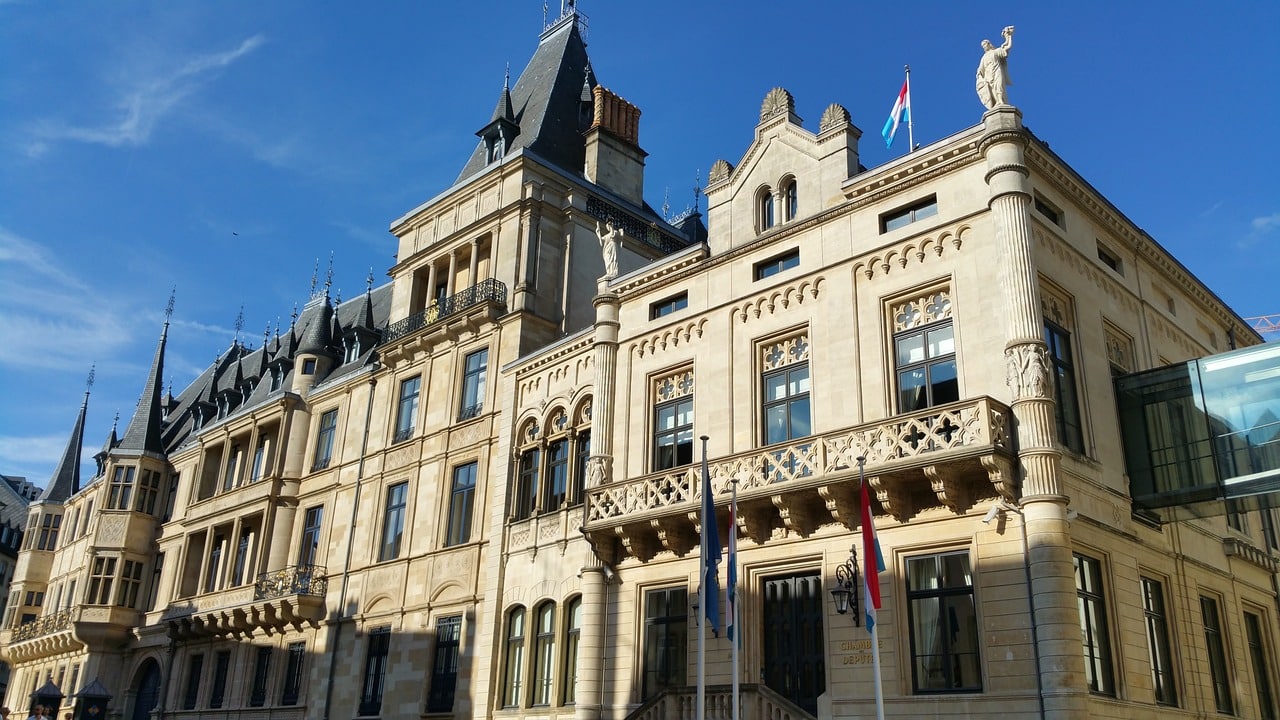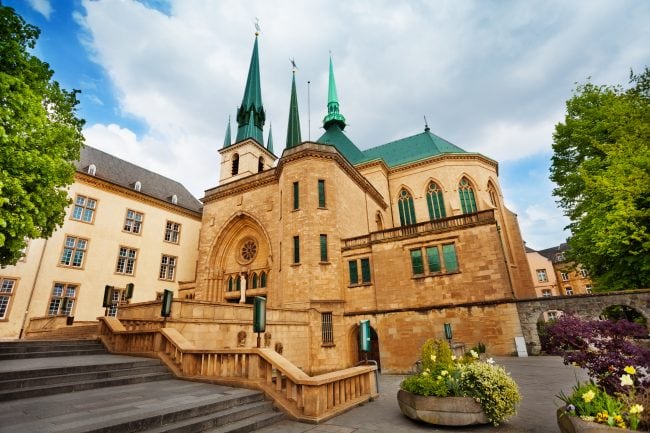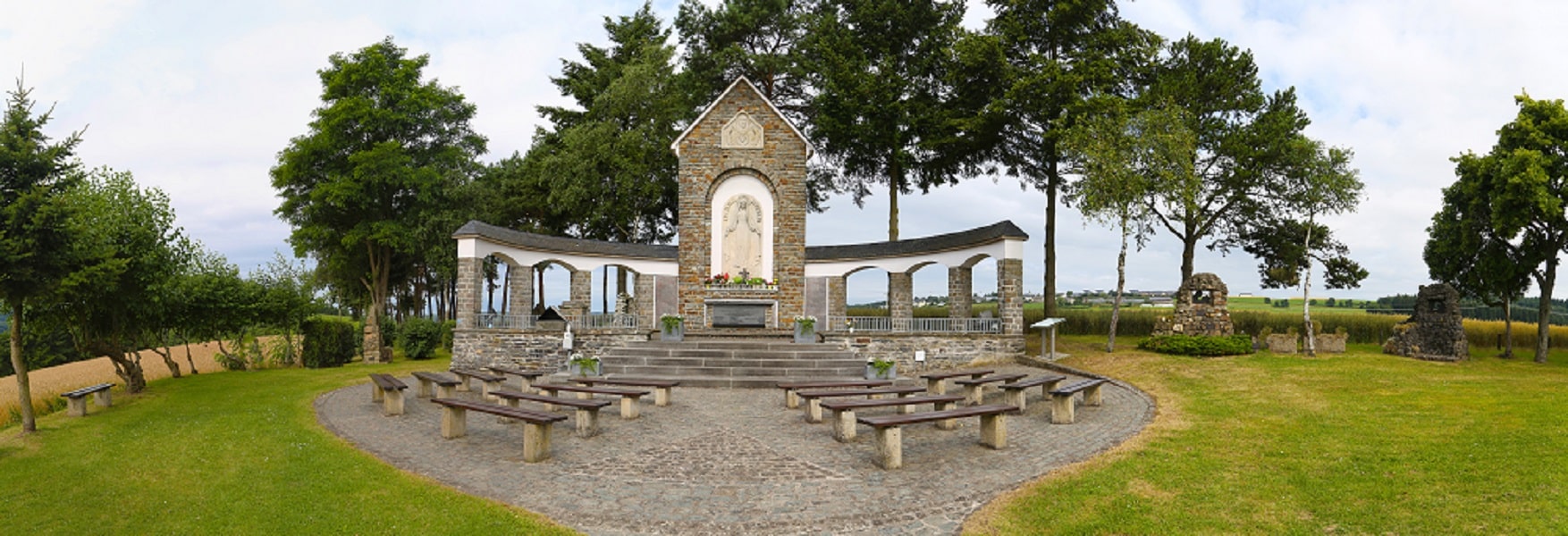Politically, Luxembourg is a sovereign, independent state. Luxembourg's political system is based on parliamentary democracy, in the form of a constitutional monarchy. The crown is hereditary in the Nassau-Weilburg family.
The national holiday is June 23, the symbolic day of the Grand Duke's birthday.
Legislative power in Luxembourg
Legislative power is shared between the Chamber of Deputies, the government and the Council of State.
The Chamber of Deputies debates and votes on legislation
The Chamber of Deputies debates and passes laws in Luxembourg. It can also propose legislation. The Parliamentary Commission for the Control of Budget Execution, chaired by a member of the opposition, has a right of scrutiny over the management of the State.
There are 60 deputies, elected for 5 years by universal suffrage and proportional representation.
The last parliamentary elections took place on Sunday, October 8, 2023.
The political parties represented in the current assembly are :
Christian Social People's Party (CSV - Chrëschtlech-Sozial Vollekspartei)
The CSV has 21 seats. Historically, almost all Luxembourg prime ministers have come from the CSV. Luc Frieden is now Prime Minister.
Gaston Thorn (1974-1979) and Xavier Bettel (2013-2023 ) are exceptions to the rule. They both come from the DP (Demokratische Partei).
Jean-Claude Juncker, CSV, was Prime Minister of Luxembourg from 1995 to 2013. He left his post to become President of the European Commission from 2014 to 2019.
The CSV is close to the Republicans in France and the CDU in Germany.
Democratic Party (DP - Demokratesch Partei)
The DP has 14 seats, 2 more than in the previous assembly. The DP is a centrist party with liberal leanings. The DP is a member of the Alliance of European Liberals and Democrats. Xavier Bettel, former Prime Minister from 2013 to 2023, comes from this party.
Socialist Workers' Party (LSAP -Lëtzebuerger Sozialistesch Aarbechterpartei)
11 seats, one more than in the previous assembly. The LSAP (Lëtzebuerger Sozialistesch Aarbechterpartei) took part in coalition governments in 1974-1979 and during the governments of Xavier Bettel from 2013 to 2023. LSAP is a member of the Party of European Socialists.
Paulette Lenert, former Minister of Health during the coronavirus crisis, headed the LSAP list.
The Greens (déi gréng)
4 seats (-5 seats). The Green Party was in power for the 1st time with Xavier Bettel's coalition government from 2013 to 2023 in the form of the "Gambia I and II" governments.
The Greens were represented by national list leader Sam Tanson, former Minister of Justice.
Alternativ Demokratesch Reformpartei (ADR)
5 seats (+1). The ADR is a conservative party with populist tendencies. It is a member of the Alliance of European Conservatives and Reformists.
déi Lénk
2 seats (0). Member of the European Left Party.
Pirate Party - Piratepartei Lëtzebuerg
3 seats (+1). This party is in the tradition of the European Pirate parties. It advocates democracy through state transparency and civil rights.
The Luxembourg government, right of legislative initiative
The government has the right to initiate legislation through draft bills.
The Conseil d'Etat issues its opinion on legislation
The Council of State is made up of 21 councillors. They are appointed and dismissed by the Grand Duke, on the basis of proposals made alternately by the government, the Chamber of Deputies and the Council of State.
It gives its opinion on draft and proposed legislation presented to the House, prior to the vote of the Members of Parliament. In particular, it examines compliance with the Constitution, international conventions and general principles of law.
Executive power in Luxembourg
Executive power is exercised jointly by the Grand Duke and the government.
The Grand Duke, Head of the Luxembourg State
The Grand Duke is the Head of State. His person is inviolable and he cannot be held liable. He cannot be accused or prosecuted.
He promulgates laws in the collection of legislation known as the Mémorial. Laws are countersigned by the Minister responsible for the relevant ministerial portfolio. All acts bearing the signature of the Grand Duke must first be submitted to the Government Council for deliberation.
Grand Duke Henri is Luxembourg's Head of State. He is a member of the Nassau-Weilburg dynasty.
The Luxembourg government
Legislative elections are held every 5 years. Following them, the Grand Duke appoints an informer from the majority. The latter proposes a government to the Head of State. In practice, the informant often becomes Prime Minister and Head of Government. He is appointed by the Grand Duke.
The government is made up of several ministers. They are appointed by the Grand Duke, on the basis of proposals from the Prime Minister.
The government is responsible for drafting legislation. Each minister is assigned one or more ministries.
The current government in Luxembourg
The current government is a coalition government. It is formed by the CSV (Chrëschtlech-Sozial Vollekspartei) and the DP (Demokratische Partei).
Members of the Frieden government
The Prime Minister is Luc Frieden, from the CSV (Chrëschtlech-Sozial Vollekspartei). He is also Minister of State.
- Xavier Bettel (DP), Deputy Prime Minister. He is also Minister for Foreign Affairs, Minister for Foreign Trade, Minister for Development Cooperation and Minister for the Greater Region.
- Yuriko Backes (DP): Minister of Defense, Minister of Gender Equality and Diversity, Minister of Mobility and Public Works
- Elisabeth Margue (CSV): Minister of Justice, Minister Delegate in charge of Relations with Parliament, Minister Delegate in charge of Media and Communications
- Max Hahn (DP): Minister for Family, Solidarity and Living Together, Minister for Home Affairs
- Gilles Roth (CSV): Minister of Finance
- Lux Delles (DP): Minister for the Economy, Minister for Energy, Minister for Tourism, Minister for the Middle Classes
- Martine Hansen (CSV): Minister for Agriculture, Food and Viticulture
- Claude Meisch (DP): Minister of National Education, Children and Youth, Minister of Housing, Minister of Regional Planning.
- Serge Wilmes (CSV): Minister for the Environment, Climate and Biodiversity, Minister for the Civil Service
- Eric Thill (DP): Minister of Culture, Minister Delegate for Tourism
- Léon Gloden (CSV): Minister of Home Affairs
- Stéphanie Obertin (DP): Minister for Digitization, Minister for Higher Education and Research
- Georges Mischo (CSV): Minister for Sport, Minister for Labour
- Martine Deprez (CSV): Minister of Health, Minister of Social Security
See the electoral system of the Chamber of Deputies and the House of Commons.
Independence of the Luxembourg judiciary
The judiciary is totally independent in Luxembourg. The courts and tribunals are entrusted by the Constitution with the exercise of judicial power.
The members of the Public Prosecutor's Office are headed by the State Attorney General.
Constitutional Court: conformity of laws with the Constitution
It has 9 members and is based in Luxembourg. It rules on the conformity of laws with the Constitution.
Justices of the peace: first level of the judicial system
They are the first level of the judicial system. They are based in Luxembourg, Diekirch and Esch-sur-Alzette.
They have jurisdiction over smaller civil and commercial cases, provided that the subject matter of the dispute does not exceed 10,000 euros, and in the last resort up to 750 euros.
Justices of the Peace also have jurisdiction over rental leases and wage garnishments, regardless of the amounts involved.
District courts: civil and commercial matters
The district courts sit in Luxembourg and Diekirch and have jurisdiction in civil and commercial matters for all cases not assigned to another jurisdiction.
Criminal cases involving imprisonment of at least 8 days or fines of over 250 euros are also handled by the district courts. They are also responsible for criminal cases involving life imprisonment or sentences of over 5 years.
Appeal proceedings for cases handled by justices of the peace, where the subject of the dispute exceeds 750 euros, are assigned to the district courts.
In divorce cases, family judges sit in the district courts. There are 14 of them in Luxembourg and 3 in Diekirch, and in principle they have sole jurisdiction.
The Youth and Guardianship Court hears youth protection cases.
Luxembourg Superior Court of Justice
It comprises a Court of Cassation and a Court of Appeal.
The Court of Appeal hears appeals in civil and commercial cases, notably from the District Courts.
The Cour de Cassation (French Supreme Court) rules on cases involving annulment or cassation by the Cour d'Appel (Court of Appeal).










